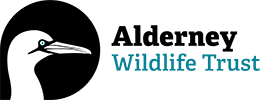Interesting news – Seabird poop can help corals grow better
Yes, you read it right. Seabird poop can indeed work wonders for coral growth.
Casey Benkwitt, a research fellow at Lancaster University (UK), and her team looked at how seabird poop affects coral reefs in the Chagos Archipelago (Indian Ocean). Focusing on seabird’s diversity and biomass, total weight and amount, influence nutrient flow to coral, the research team found that larger and more varied seabird populations have better impact on offshore corals.
Birds recorded in the research, like sooty terns (Onychoprion fuscatus), lesser noddies (Anous tenuirostris), red-footed boobies (Sula sula) and wedge-tailed shearwaters (Puffinus pacificus), fly out to the open ocean to eat fish and squid. When they return to roost on islands and poop, nutrients like nitrogen and phosphorus seep into the water, fertilizing the land, water and coral reefs.
By tagging corals and relocating corals between islands, both on islands with seabirds and islands with rats, the research team went back annually to remeasure the coral growth. They found that corals close to islands with thriving seabird populations fare much better than those near rat-infested ones. In fact, corals grow about twice as fast where there are abundant seabirds compared to areas where seabirds were lost to rats that eat and destroy bird populations.
According to the article, to bolster seabird populations, we can:
- Protect seabirds and their eggs from human exploitation and destruction by rats
- Replant native island vegetation
- Eradicate invasive predators like rats
- Reduce plastic use and join beach cleans
Closer to home, the devastating impact of rats on bird populations has been reported on Alderney and AWT has put in great efforts to control rats so that our bird populations thrive. Annually, AWT survey the islands and islets around our coastline and monitor the islands’ marine wildlife with the help of Sula of Braye. With ambitious conservation goals, AWT is looking for sponsorship to help enhance Sula’s capabilities. To explore partnership opportunities and learn more about how you can support Sula’s mission, please contact Paul at communications@alderneywildlife.org.
Source: Seabird poop is recipe for coral recovery amid climate-driven bleaching (2024) Mongabay Environmental News. Available at: https://news.mongabay.com/2024/02/seabird-poop-is-recipe-for-coral-reco… (Accessed: 3 March 2024).

